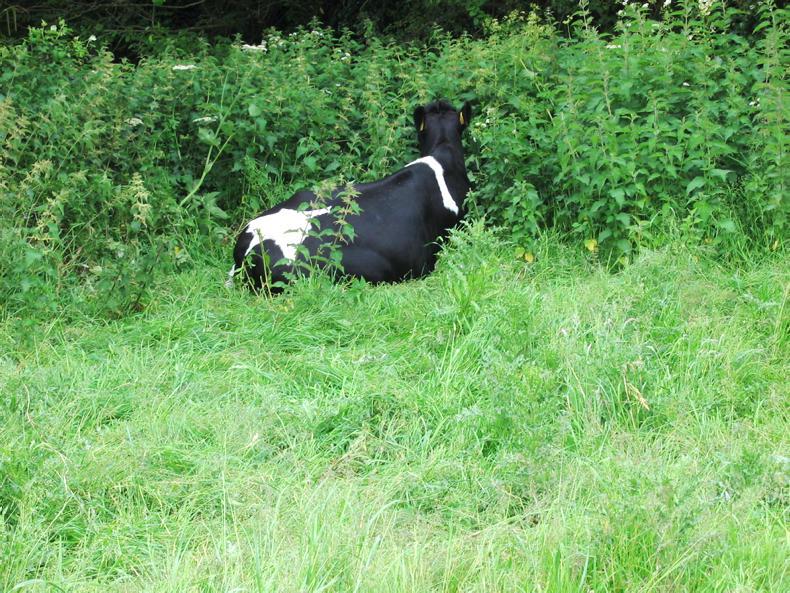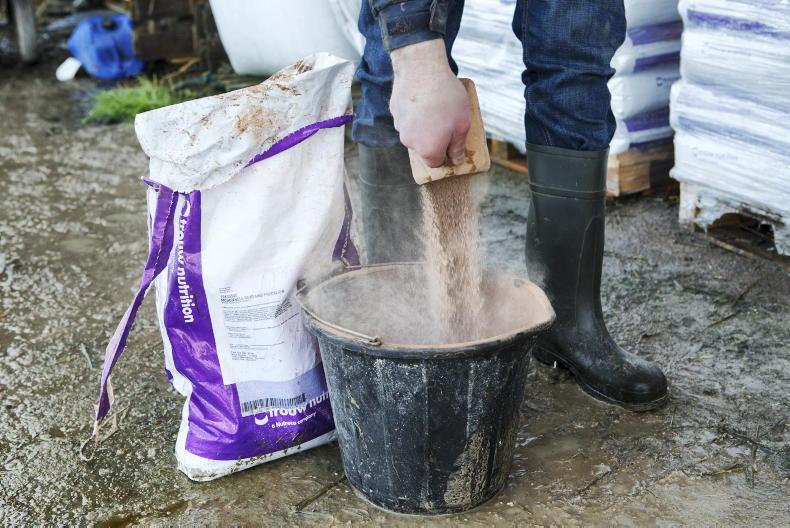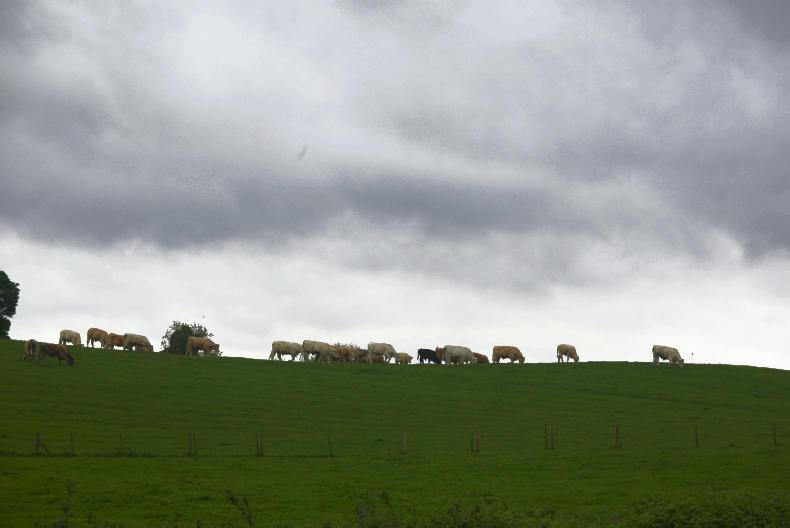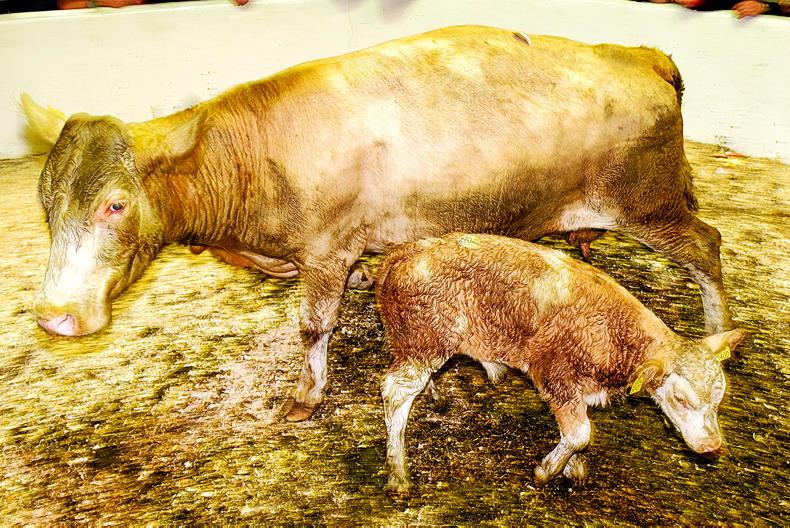Grass tetany occurs when cows have a low level of magnesium in their blood. Often, the first a time a farmer realises that his herd has a magnesium deficiency is when a dead cow is found in a field. When an animal is dying from grass tetany, it will typically kick its legs or move its head in an aggravated fashion, resulting in markings on the ground around the cow.
Signs of grass tetany
If you are lucky to catch a cow with grass tetany in time, they can show signs of being unsteady when walking, hence the term "grass stagger". They may be trembling or even down. Quick veterinary intercession is essential as death can result within hours.
Grass tetany and milk fever can often occur at the simultaneously in cows that are near calving or are have recently calved
Once a cow calves her requirement for dietary magnesium increases substantially (almost doubles). This leads to early lactation cows being at most risk. Grass tetany and milk fever can often occur at the simultaneously in cows that are near calving or are have recently calved. When milk magnesium concentration reduces, this can affect calcium levels and increase the risk of milk fever occurring.
For this reason, a vet will normally treat a suspect cow with both magnesium sulphate subcutaneously and calcium intravenously. In sever circumstances, a vet may treat a cow with magnesium intravenously at a very slow rate. While doing this the vet will check the heart beat of the animal as if administered to quickly, death can occur.
Factors which can increase the risk
Spring and autumn are the two at risk times for the disease. Cows that are let out to lush grass are particularly at risk, especially during cold, wet weather. A wet or cold night can lead to a reduced intake of grazed grass, which further decreases the cows’ magnesium intake leaving her at a higher risk.
Spreading high levels of nitrogen (N) or potassium (K) in spring time can also put cows at increased risk of hypomagnesium.
If fields are acidic and have a low pH, this can increase the concentration of potassium in grass which can further aggravate the problem
If a cow’s diet has a high concentration of potassium, this has a direct effect on the absorption of magnesium from grazed forage. If fields are acidic and have a low pH, this can increase the concentration of potassium in grass which can further aggravate the problem. Some animals can be more susceptible than others to magnesium deficiencies as rate of absorption of magnesium can differ substantially.
Read part two of this series on www.farmersjournal.ie on Sunday.
Read more
How many applied for the dairy reduction scheme in your county?
Grass tetany occurs when cows have a low level of magnesium in their blood. Often, the first a time a farmer realises that his herd has a magnesium deficiency is when a dead cow is found in a field. When an animal is dying from grass tetany, it will typically kick its legs or move its head in an aggravated fashion, resulting in markings on the ground around the cow.
Signs of grass tetany
If you are lucky to catch a cow with grass tetany in time, they can show signs of being unsteady when walking, hence the term "grass stagger". They may be trembling or even down. Quick veterinary intercession is essential as death can result within hours.
Grass tetany and milk fever can often occur at the simultaneously in cows that are near calving or are have recently calved
Once a cow calves her requirement for dietary magnesium increases substantially (almost doubles). This leads to early lactation cows being at most risk. Grass tetany and milk fever can often occur at the simultaneously in cows that are near calving or are have recently calved. When milk magnesium concentration reduces, this can affect calcium levels and increase the risk of milk fever occurring.
For this reason, a vet will normally treat a suspect cow with both magnesium sulphate subcutaneously and calcium intravenously. In sever circumstances, a vet may treat a cow with magnesium intravenously at a very slow rate. While doing this the vet will check the heart beat of the animal as if administered to quickly, death can occur.
Factors which can increase the risk
Spring and autumn are the two at risk times for the disease. Cows that are let out to lush grass are particularly at risk, especially during cold, wet weather. A wet or cold night can lead to a reduced intake of grazed grass, which further decreases the cows’ magnesium intake leaving her at a higher risk.
Spreading high levels of nitrogen (N) or potassium (K) in spring time can also put cows at increased risk of hypomagnesium.
If fields are acidic and have a low pH, this can increase the concentration of potassium in grass which can further aggravate the problem
If a cow’s diet has a high concentration of potassium, this has a direct effect on the absorption of magnesium from grazed forage. If fields are acidic and have a low pH, this can increase the concentration of potassium in grass which can further aggravate the problem. Some animals can be more susceptible than others to magnesium deficiencies as rate of absorption of magnesium can differ substantially.
Read part two of this series on www.farmersjournal.ie on Sunday.
Read more
How many applied for the dairy reduction scheme in your county?










SHARING OPTIONS